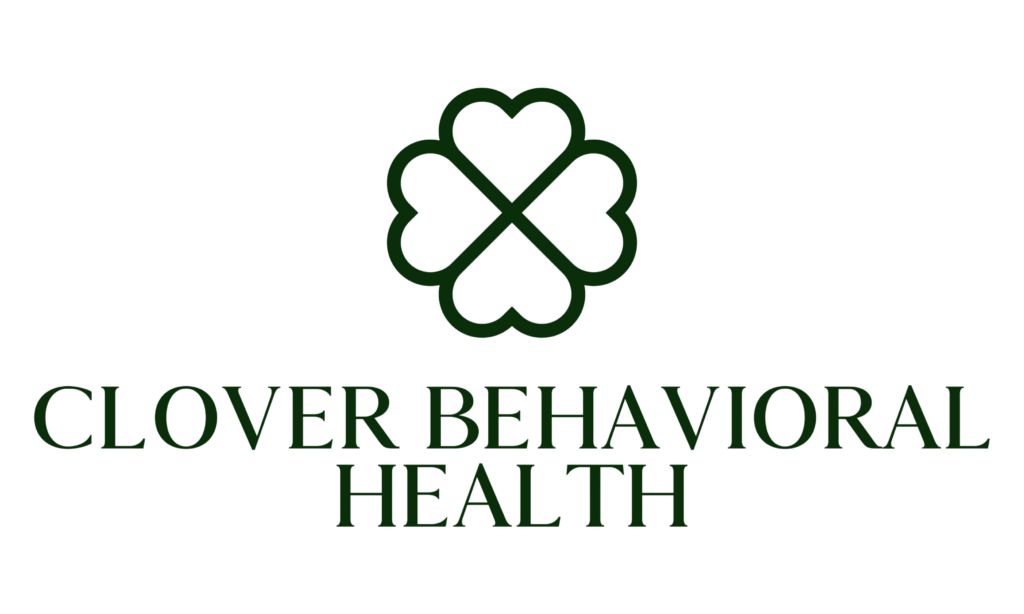Post-Traumatic Stress Disorder (PTSD) is a mental health condition that can develop after experiencing or witnessing a traumatic event. Whether the trauma stems from combat, abuse, an accident, or any life-threatening situation, PTSD can have a lasting impact on a person’s mental, emotional, and even physical well-being. The good news is that PTSD is treatable—and you don’t have to face it alone.
At Clover Behavioral Health in Massachusetts, we provide compassionate, evidence-based care for individuals living with PTSD. In this blog, we’ll explore the treatment options available and how to choose the right path toward recovery.
Understanding PTSD
PTSD affects nearly 13 million people in the U.S. each year. It can manifest in a variety of ways, including:
- Flashbacks or intrusive memories of the traumatic event
- Avoidance behaviors, such as steering clear of people, places, or situations that trigger memories
- Negative changes in mood, like guilt, shame, anger, or detachment
- Hyperarousal, including difficulty sleeping, feeling on edge, or being easily startled
If these symptoms persist for more than a month and interfere with daily life, it’s important to seek help.
Why PTSD Treatment Matters
Left untreated, PTSD can lead to a range of complications including depression, substance use, relationship challenges, and difficulties at work or school. Seeking treatment is not a sign of weakness—it’s a courageous and necessary step toward reclaiming your life.
At Clover Behavioral Health, we believe that with the right support, healing from trauma is possible. Here’s a closer look at your options.
1. Trauma-Informed Individual Therapy
One of the most effective treatments for PTSD is individual therapy. Trauma-informed care ensures that therapists are not only skilled in evidence-based techniques, but also sensitive to the complex effects of trauma.
Common therapeutic approaches include:
Cognitive Behavioral Therapy (CBT)
CBT helps individuals recognize and reframe distorted thinking patterns that contribute to fear, anxiety, and guilt. It’s often used as a foundation for PTSD treatment.
Cognitive Processing Therapy (CPT)
A specialized form of CBT, CPT helps individuals challenge and modify unhelpful beliefs related to the trauma.
Prolonged Exposure Therapy (PE)
PE is a structured, evidence-based approach that gradually exposes individuals to trauma-related memories or situations in a safe and controlled way. This reduces avoidance behaviors and helps desensitize emotional responses.
Eye Movement Desensitization and Reprocessing (EMDR)
EMDR uses bilateral stimulation (like eye movements) to help the brain reprocess traumatic memories and reduce their emotional impact. EMDR is especially effective for single-incident trauma and is widely endorsed by mental health professionals.
2. Group Therapy for PTSD
Healing from trauma often requires connection. Group therapy offers a safe space to share experiences, build trust, and learn from others who are on similar journeys. Many people find it comforting to know they’re not alone.
Group sessions at Clover Behavioral Health may focus on:
- Processing trauma in a supportive environment
- Learning coping strategies and grounding techniques
- Addressing related issues such as anxiety, depression, or substance use
Group therapy is often combined with individual treatment for a comprehensive approach.
3. Medication Management
While therapy is the cornerstone of PTSD treatment, some individuals benefit from medication to manage symptoms such as anxiety, depression, or sleep disturbances.
Common medications for PTSD include:
- SSRIs (Selective Serotonin Reuptake Inhibitors) such as sertraline or paroxetine, both FDA-approved for PTSD
- SNRIs, like venlafaxine, which can help with mood regulation
- Prazosin, often prescribed for trauma-related nightmares and sleep problems
At Clover Behavioral Health, our psychiatric providers work closely with clients to find the right medication, dosage, and combination with other treatments.
4. Intensive Outpatient Program (IOP)
For individuals who need more structured care than weekly therapy but do not require inpatient treatment, an Intensive Outpatient Program (IOP) is an ideal option.
Our IOP for PTSD in Massachusetts includes:
- Multiple therapy sessions each week
- A mix of individual and group therapy
- Psychoeducation on trauma, coping strategies, and emotional regulation
- Medication management as needed
IOP allows clients to receive intensive treatment while maintaining daily responsibilities such as work, school, or family care.
5. Holistic & Supportive Therapies
PTSD impacts the whole person—mind, body, and spirit. That’s why our approach at Clover Behavioral Health includes holistic therapies to support healing on multiple levels.
Examples include:
- Mindfulness and Meditation to build present-moment awareness and reduce reactivity
- Yoga or movement-based therapy to release trauma stored in the body
- Creative therapies such as art or music to express emotions that may be difficult to verbalize
- Nutrition and wellness education to support physical health and energy levels
These complementary therapies are integrated into treatment plans based on each client’s needs and preferences.
6. Family Therapy and Support
PTSD doesn’t just affect the individual—it can impact the entire family. Loved ones may not understand the changes they’re seeing, or may feel helpless and unsure how to support recovery.
Family therapy can:
- Improve communication
- Educate loved ones about PTSD
- Build a stronger support network
- Address relationship conflicts caused by trauma
We encourage involving family when appropriate, to help create a more stable and healing environment for everyone involved.
When to Seek Help
If you or someone you love is experiencing symptoms of PTSD, don’t wait. The earlier treatment begins, the more effective it can be.
Signs that it’s time to seek help include:
- Persistent nightmares, flashbacks, or intrusive thoughts
- Avoiding places or people related to the trauma
- Ongoing feelings of fear, guilt, anger, or numbness
- Trouble functioning at home, work, or socially
- Increased substance use or self-harming behaviors
Begin Healing with Clover Behavioral Health
At Clover Behavioral Health, we are dedicated to helping individuals in Massachusetts find relief from PTSD and reclaim their lives. Our compassionate, experienced team creates personalized treatment plans to meet your unique needs and goals.
Whether you’re seeking individual therapy, group support, medication management, or a comprehensive IOP, we’re here to walk beside you every step of the way.
Take the first step today. Contact Clover Behavioral Health to learn more about our PTSD treatment programs and begin your journey toward healing and hope.














